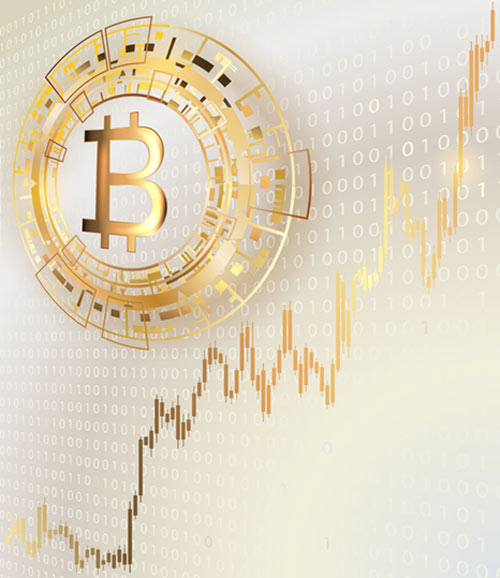Bitcoin mania is starting to look like a religion.
I say that because both bitcoin and religion involve faith in the unknowable. Some bitcoin investors believe the cryptocurrency, along with the underlying blockchain technology, will be a vital part of a new, decentralized, post-government society.
I can’t prove that won’t happen—nor can bitcoin evangelists prove it will. Like life after death, they can only say it’s out there beyond the horizon.
If you believe in bitcoin paradise, fine. It’s your business… until your faith puts everyone else at risk. As of this month, bitcoin is doing it.

Photo: Getty Images
Lenders & Leverage
Is bitcoin in a price bubble? I think so, as I said in last week’s Why Bitcoin Can’t Be Money article.
Asset bubbles usually only hurt the buyers who overpay, but that changes when you add leverage to the equation.
Leverage means “buying with borrowed money.” So when you buy something with borrowed money and can’t repay it, then the lender loses too. The problem spreads further when lenders themselves are leveraged.
For bitcoin mania to infect the entire financial system, like securitized mortgages did in 2008, buyers would have to use leverage.
The bad news is that a growing number do just that.

Photo: Getty Images
“My Hands Are Tied”
In the US, we have a Financial Stability Oversight Council to watch for system-wide vulnerabilities. The FSOC issued its 164-page annual report this month. Here’s its plan on bitcoin and other cryptocurrencies:
“It is desirable for financial regulators to monitor and analyze their effects on financial stability.”
Sounds like FSOC is on the case—or at least will be on it, someday.
Meanwhile, this month commodity regulators allowed two different US exchanges to launch bitcoin futures contracts.
Oddly, instead of griping about slow regulatory approval, futures industry leaders think the government moved too fast. To get why, you need to understand how futures exchanges work.












Leave A Comment